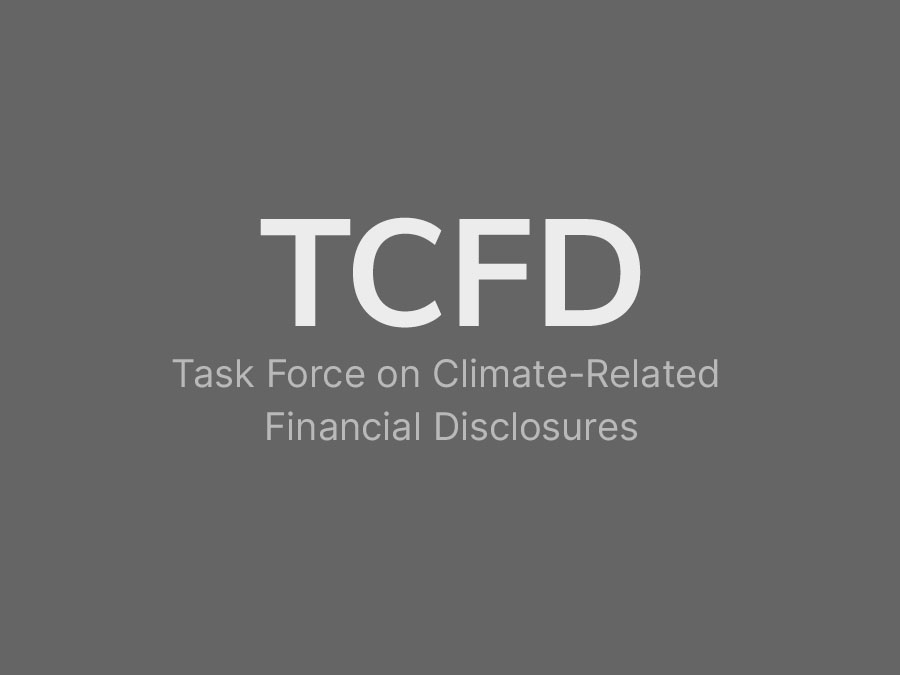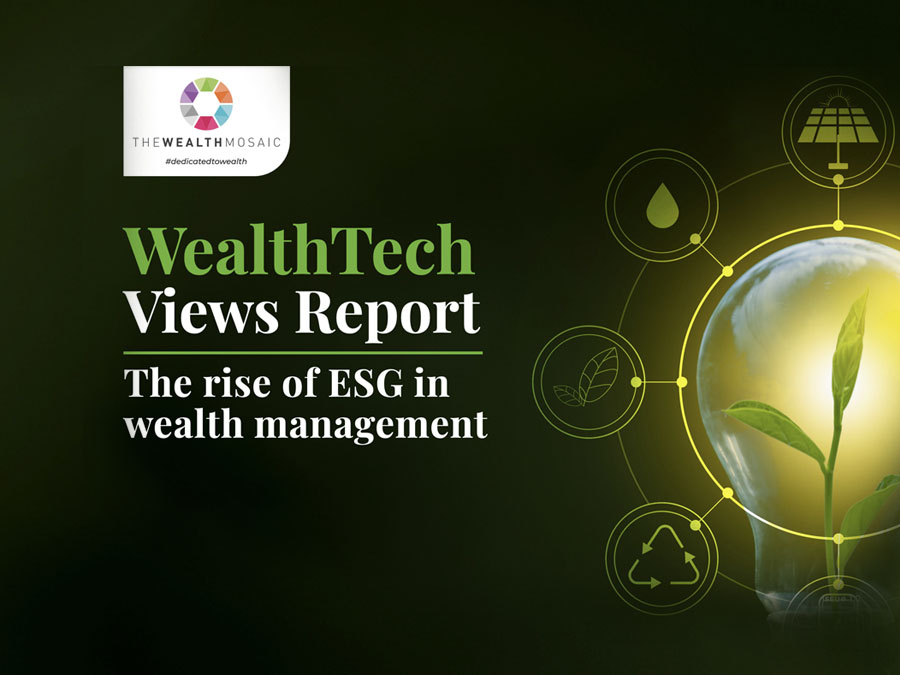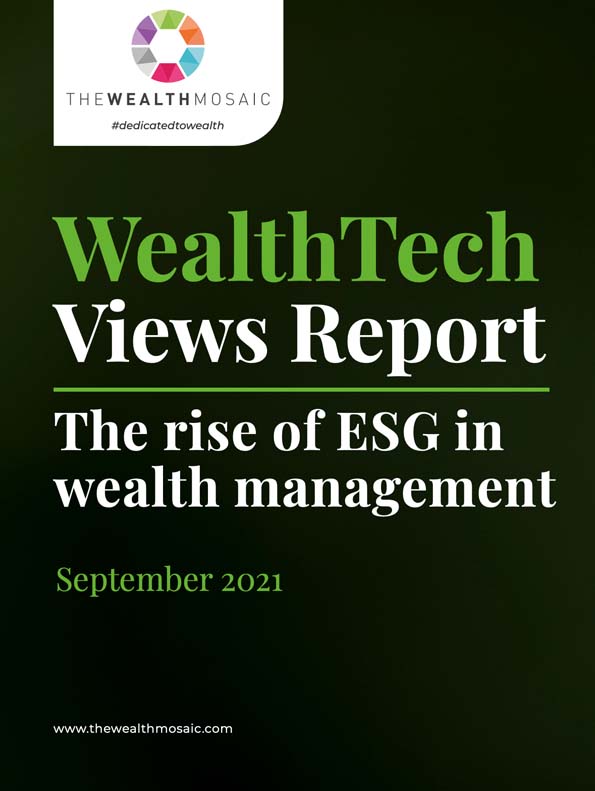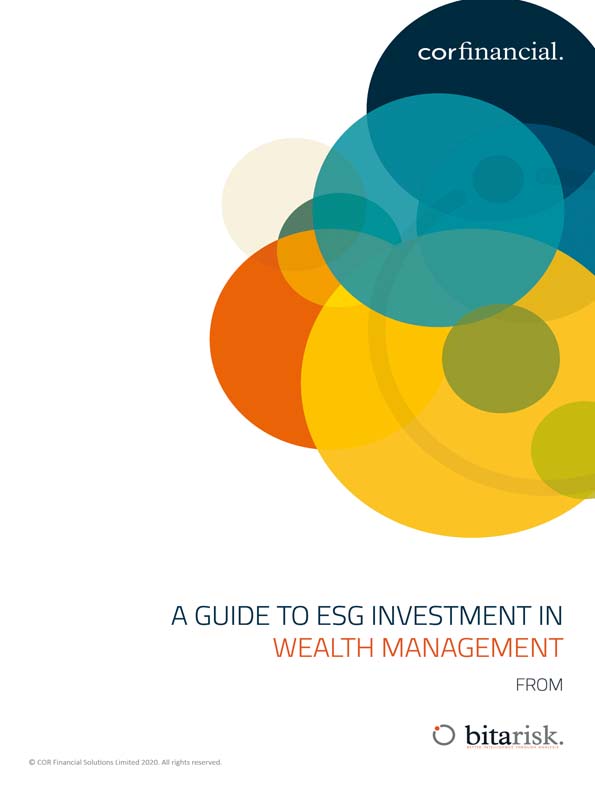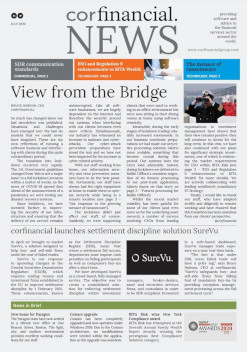TCFD (Task Force on Climate-Related Financial Disclosures) reporting will be a challenge for many firms. While the initial requirements relate to larger institutions and certain client portfolios, firms with GB£5 billion-plus Assets Under Management (AUM) will also have to report with comparisons to data collected in 2023, meaning careful planning is needed now. This historic comparison data will add further to the complexity of the 100-plus data points in the Investment Association TCFD report template. In addition, this data will need to be aggregated across client portfolios for entity reporting. Lastly, there is clear direction from the regulator that on-demand reporting is expected to be made available to all clients in due course. So, there are significant challenges in TCFD reporting.
The UK’s Financial Conduct Authority helped set the pace for the global adoption of Environmental, Social and Governance standards in financial services when at the end of 2021 it became the first securities regulator to introduce mandatory TCFD-aligned disclosure requirements for asset managers and asset owners. This is already having a huge impact which will only grow.
The report content, in line with other sustainability-related regulatory required reports, has been proscriptive, which removes ambiguity, but does not necessarily make it easy. The Investment Association has published helpful templates for segregated and pooled fund portfolios. The first set of reports for institutions with over GB£50 billion in AUM will need to be submitted by the end of June 2023, to cover the 2022 calendar year; those with GB£5 billion-plus in AUM will be subject to the rules from 1 January 2023, with their first reports due end-June 2024. By that point, a full 98% of the UK’s asset management industry will need to comply with the Task Force on Climate-Related Financial Disclosures’ rules. Part of the challenge will be the requirement to provide a year-on-year comparison of the portfolio metrics reported.
A good deal of voluntary reporting has also been taking place, and pressure both top-down from regulators and bottom-up from investors will likely mean that most firms will want to get their TCFD house in order well ahead of the second-tier deadlines kicking in. This yoking together of compliance and client demands is a very welcome development for those who care about environmental action as we all should.
The TCFD report focuses on the investment organisation’s governance-related arrangements through a climate change lens and provides a consistent way of reporting the risks and opportunities faced in a portfolio as a result of it. It is safe to assume that most end-investors do very much want to be apprised of the climate impact of their financial holdings today, and it is certain that providing such insights will be a hygiene factor for tomorrow’s core client base. Research recently conducted by Compeer found that 80% of clients want access to ESG-compliant investments in their portfolio, with this figure rising to 94% for clients under the age of 40. With wildfires and floods making the impacts of climate change clear for all to see, the “E” reigns supreme among the Environmental, Social and Governance concerns investors want to see reflected in their portfolios now.
Thought leadership through technology
Whether a firm provides a sustainable investment offering – and an expanded TCFD report offers an opportunity to demonstrate this to clients – or not, the key to efficient reporting and avoiding issues will be a systematic approach. This brings the benefit of information and analysis across the client base, uncovering risks, providing calls to action, and giving insight to the investment manager and central investment teams alike.
At BITA Risk, we have always prided ourselves on having a finger on the pulse of both domestic and global regulatory change and cultivating a deep understanding of where the rule books might be heading – in light of both the spirit and the letter of the law. This has served us extremely well in developing our products to help keep institutions ahead of compliance changes, rather than just reacting to them. The range of institutions we work with has also enabled us to become something of a thought-leader and conduit for conveying best practices as the industry grapples with ever-changing regulatory regimes. As such, more and more we have a highly consultative role.
No doubt conscious that the UK’s institutions are having to cope with a barrage of new rules, not least its sweeping new Consumer Duty regime, the FCA is currently asking only for fairly limited TCFD reporting to clients. However, the expectation is clearly that all investors will have climate impact information at their fingertips in short order. Clients’ expectations for ever more personalisation being as they are, we can further predict that firms will need to be able to drill into these metrics in any number of ways too.
Having considered the requirements to provide year-on-year metrics at a portfolio level and to be able to aggregate metrics across client segments, we have suggested using this data to identify stranded assets, portfolios with climate risk exposure and to demonstrate a firm’s changing exposure through time.
With a structured data approach, communicating to clients the investment firm’s stewardship activity and mitigating reasons for holding carbon-heavy stocks, not only becomes easy, but drives a demonstration of the firm’s worth to the client.
How to make climate impact information relevant and readily comprehensible is not just a matter of client satisfaction, although it certainly is that; helping people to make investment decisions which reflect their priorities in the widest sense is what the disclosure rules are all about.
The TCFD rules aim to serve the most high-minded of principles, but as we help to steer capital to more sustainable deployment, the industry must stay firmly in the realm of their practical application too. We have been delighted to offer institutions guidance on firm, product and ad-hoc reporting requirements, metrics definitions, reporting templates and more. Personally, my work has never been more interesting, or more valuable in a societal sense.
Another portfolio monitoring lens
While climate impact disclosures are important from humanitarian and environmental perspectives, there is a regulatory drive to report soon. We like to emphasise to firms which may feel daunted, that this is just another lens through which to view portfolios – and therein arguably lies our particular strength. We have spent decades now enabling firms to master their metrics on performance, risk, suitability, and costs, meaning that we have abundant transferable insights on how to make TCFD reporting work optimally in everyday operations too.
Firms’ first concern will undoubtedly be how to avoid manual processes and being dragged back to “Excel hell”; then, relatedly, they will want to know which processes need to be in place to facilitate portfolio analysis and change. With profitability remaining under pressure, adviser productivity has to remain a top concern. Running analysis for individual portfolios and collating historic data will take time, as will aggregating across groups of clients for entity reporting. Creating structured data and an automated framework will alleviate pressure on the adviser and give the client a better experience.
These are undeniably challenging times for business leaders, but we see a gratifying proportion keeping the competitive advantages available from these pioneering reporting requirements front of mind. Here, we have been assisting institutions to develop trend reports to demonstrate progress on positive investment practices at both the client and entity levels to great effect. Helping the individual know the impact they are making will be a very powerful thing for both client satisfaction and retention. Being able to demonstrate the difference the firm as a whole is contributing is, in my view, a ready-made marketing campaign. I know that many Chief Marketing Officers agree.
In all, the TCFD requirements represent a particularly novel kind of compliance challenge, but one which we are seen leading firms rapidly embrace as an important differentiating factor. Sophisticated clients can already see that espousing ESG credentials is one thing, but that evidencing them robustly and acting on them is quite another. We look forward to working with even more firms in the latter camp as the industry moves to make its mark on climate change.
As leaders in portfolio monitoring and governance, BITA Risk analyses circa GB£180 billion of wealth management assets every night for a range of Wealth management firms. At our core is the quick, efficient analysis and aggregation of data, with seamless and efficient workflows for governance and client managers alike. We have extended our solutions to deliver what firms need now for TCFD, together with significant added benefits for the firm, following the IA (Investment Association) template as a base and then adding analysis and client-facing interpretations.
By Daryl Roxburgh, President and Global Head BITA Risk® part of the corfinancial® Group
If you would like to discuss the points raised, please email me at BITARisk@corfinancialgroup.com.
In the next two reviews, we will look at the monitoring of ESG and Ethical Restrictions and then Consumer Duty. Sign-up here to receive these directly.
For more information please visit https://www.corfinancialgroup.com/financial-software-products/bita-risk/ or contact us at BITARisk@corfinancialgroup.com.

